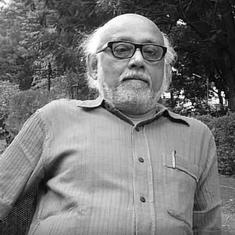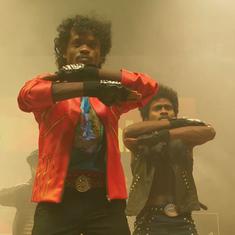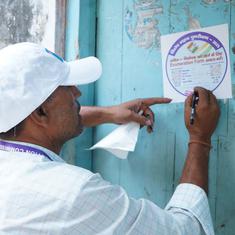Two US athletes who staged podium protests at the recent Pan American Games have been reprimanded but will not face further punishment by United States Olympic chiefs, USA Today reported on Wednesday.
Fencer Race Imboden and hammer thrower Gwen Berry both came under fire after protesting the policies of President Donald Trump as they collected medals in Lima.
Imboden took a knee during the playing of the US national anthem while Berry raised a clenched fist before later calling out social injustice “and a president who’s making it worse.”
The United States Olympic and Paralympic Committee later issued a statement expressing “disappointment” at the athlete protests, warning it was reviewing what action to take.
USA Today reported on Wednesday that USOPC chief Sarah Hirshland had taken a conciliatory tone in letters sent to Imboden and Berry.
However, while Hirshland said she admired each athlete’s decision “to be an active citizen”, she warned that they could face serious sanctions if there was any repeat in the next 12 months – a period covering next year’s 2020 Olympics in Tokyo.
Notifying the athletes that they faced “a probationary period for the next 12 months,” Hirshland said: “This means you could face more serious sanctions for any additional breach of our code of conduct than might otherwise be levied for an athlete in good standing.”
Hirshland said US Olympic officials would work with the International Olympic Committee and International Paralympic Committee and athletes to “more clearly define for Team USA athletes what a breach of these rules will mean in the future.”
‘Fundamental freedom’
Trump has clashed repeatedly with professional athletes who have protested against racial injustice in the United States, accusing NFL players who kneeled during the national anthem of being unpatriotic.
Several championship-winning sports teams meanwhile have refused to attend White House receptions since Trump’s election.
During the recent FIFA Women’s World Cup, Trump clashed with star US forward Megan Rapinoe, who had said she would boycott any White House event.
The prospect of US athletes protesting against Trump at next year’s Olympics could potentially lead to sanctions by the IOC, whose charter forbids any “demonstration or political, religious or racial propaganda” in Olympic arenas.
Hirshland said while she supported the athletes’ right to protest, she disagreed with the timing and venue of their activism.
“I applaud your decision to be an active citizen,” Hirshland said. “It is admirable. Regardless of one’s viewpoint, it is a fundamental freedom and important obligation that we each hold to participate actively in the pursuit of a better country and a better world.
“While I respect your perspective – and that of every athlete for whom I’m lucky enough to serve – I disagree with the moment and manner in which you chose to express your views. The rules we operate under as members of Team USA exist for important reasons.
“A prohibition on political protest is not intended to silence important voices. In fact, I am genuinely committed to helping identify better avenues for athletes to make their voices heard.”










